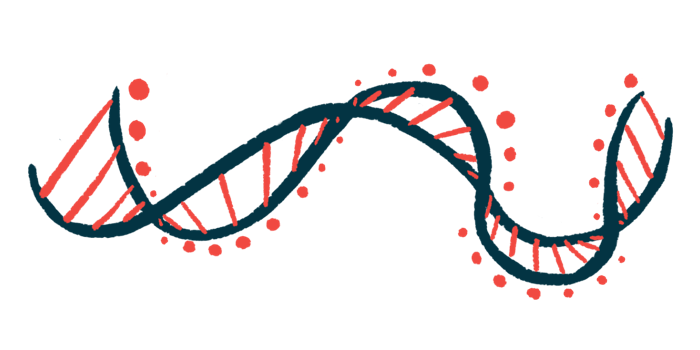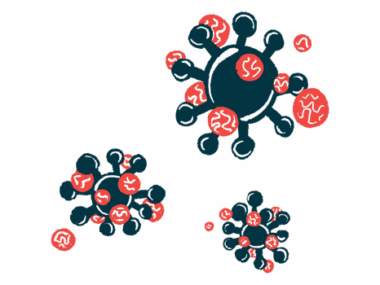Worse CF Detection in Genetic Screening for US Ethnic Groups
Analysis: Lower detection rates lead to delayed diagnosis for minorities
Written by |

Newborn genetic screening panels for variants in the CFTR gene — mutations of which are the underlying cause of cystic fibrosis (CF) — had lower detection rates in minority racial and ethnic groups in the U.S., a large-scale analysis found.
Lower detection rates with genetic testing among these patient populations led to increased false-negative tests and a delayed diagnosis, “furthering CF health disparities,” according to researchers.
“[People with cystic fibrosis] who are Black/African American or Hispanic have worse outcomes, including lower lung function, increased respiratory infections, and higher mortality,” the investigators wrote.
“These results indicate that nationwide quality improvement is needed,” the team recommended.
The study, “Detection of Disease-Causing CFTR Variants In State Newborn Screening Programs,” was published in the journal Pediatric Pulmonology.
Newborn screening (NBS) programs are intended to find, at birth, variants or mutations in CFTR, the gene that is defective in CF. Early diagnosis through newborn screening programs has been found to improve real-world outcomes for patients.
Starting treatment early on helps to reduce severe symptoms and improve nutrition, lung function, and survival.
Newborn genetic screening and minorities
While CF occurs in people of all ethnicities and races in the U.S., screening programs were developed based on non-Hispanic white populations.
Although race and ethnicity are social constructs and not based on significant genetic differences, the distribution of CFTR variants across different ethnic groups can differ depending on ancestry. As such, there is a concern that CF newborn screening genetic panels can result in a disparity in diagnosis — an important equity issue with ethical implications.
In this report, researchers in the U.S. in 2020 examined differences in variant rates for each ethnic group for common CF genetic panels.
The team analyzed all 46,729 individuals who underwent genetic analysis with information from the CF Foundation Patient Registry. The registry collects data on the health status of all registered cystic fibrosis patients who receive care in a CF Foundation-accredited center.
Their goal was to estimate the detection of at least one CFTR variant, or two CFTR variants, using seven genetic panels now used by newborn screening laboratories, by race and ethnicity.
The study mainly focused on people with CF but also included those with the related condition CFTR-related metabolic syndrome (CRMS) or with CF screen positive inconclusive diagnosis.
Across each screening panel, the detection of at least one CFTR variant ranged from 83.9%–96.1%, and 43.4%–83.6% for two CFTR variants. Notably, detection rates were lower in minority ethnic groups.
Higher detection rates of variants were seen for all ethnic groups using panels that included more variants compared with fewer variants.
Several panels had the highest detection rates: there were 139 variants for Luminex; 372 for the Wisconsin-expanded panel; and 401 pathogenic, or disease-causing variants for CFTR2 list.
The detection rate was 280 pathogenic variants with 49 variants with varying clinical consequences (VVCCs) — those that, when paired with a variant known to cause CF, lead to CF in some cases but not others. ACMG-23, with 23 variants, had the lowest case detection rate.
The addition of VVCCs in screening panels led to a larger increase in detection rates of two CFTR variants compared with at least one variant.
Case detection, with at least one CFTR variant identified, varied widely between each ethnic group for all panels.
Variations among ethnic groups
Among American Indian & Alaskan Native CF patients, the detection of at least one variant was 84.7%–91.0%. Meanwhile, in Asian patients, detection ranged from 56.2%–77.4%.
In the Black/African American CF population, detection occurred in 73.4% to 86.1% of patients. For Hispanic CF patients, the detection rate was 81.0%–94.1%, while it ranged from 86.8% to 94.1% in mixed-race people with CF. Hawaiian & Pacific Islander people with CF had a 100% detection rate for all panels. In Black/African American, American Indian and Alaskan Native, Asian, and Hispanic CF patients, there was a very low detection of at least one copy of F508del, the most common CF-causing genetic defect.
For each ethnic group, the detection of two CFTR variants was lower than the detection of at least one variant in all panels. Here, the detection of two variants was highest in non-Hispanic white patients, ranging from less than or equal to 71.9% to 86.0%.
In contrast, the team found the lowest detection rate in all other ethnic groups. American Indian and Alaskan Native CF patients had a two-variant detection rate of 65.3%–78.5%, while that rate was 25.3%–53.9% in Asian CF patients and 31.6% to 60.8% in Black/African American people with CF.
Detection was 49.5%–76.0% in Hispanic people with CF, 36.7%–73.2% in mixed-race CF patients, and less than or equal to 71.4% to 85.7% in Hawaiian and Pacific Islander patients with CF.
Compared with CF, CRMS patients had lower detection rates with at least one CFTR variant across all screening panels. There were very low case detection rates of two variants for all ethnicities except for non-Hispanic white people with CRMS.
Detecting at least one variant in CMRS varied greatly between ethnic groups, with the highest rate found in Hispanic, mixed-race, and non-Hispanic white people with CRMS.
States in the U.S. with greater ethnic diversity had lower case detection rates in each screening panel, and for all variant panels, case detection rates varied between states. Detection of at least one variant was lowest in Hawaii and highest in Maine, while detection of two variants was lowest in the territory of Puerto Rico and highest in Maine.
From 2001 to 2020, 276 individuals with CF (3.8%) reported having a false-negative result, meaning the person had cystic fibrosis but tested negative in screening panels. During this period, 378 (11.8%) experienced a delayed diagnosis of more than 180 days, which was presumed to be a missed newborn screen, the researchers noted.
Adding false-negative and delayed screening results (276 plus 378), and comparing that with the total of 6,354 new diagnoses, suggested that “the U.S. only achieved a 90% sensitivity” or accuracy rate with CF newborn genetic screening, according to researchers.
Among the overall CF population, Black/African American, Hispanic, and mixed-race people were overrepresented in false-negative screens and delayed diagnosis. In contrast, non-Hispanic white people were underrepresented in both of these categories.
“Detection of at least 1 or 2 CFTR variants through CF [newborn screening] is different by demographic racial and ethnic group,” the researchers concluded. “This can contribute to missed or delayed diagnosis of CF.”
This “is likely a major contributor to existing health disparities in racial and ethnic minoritized people,” the team wrote.








